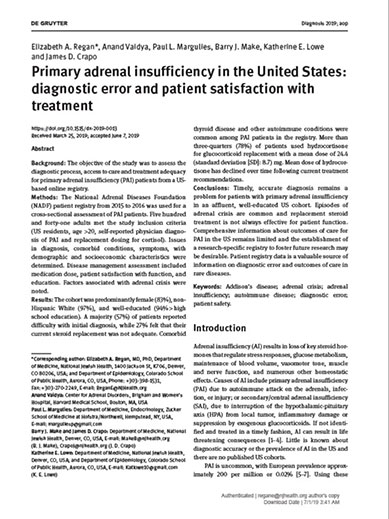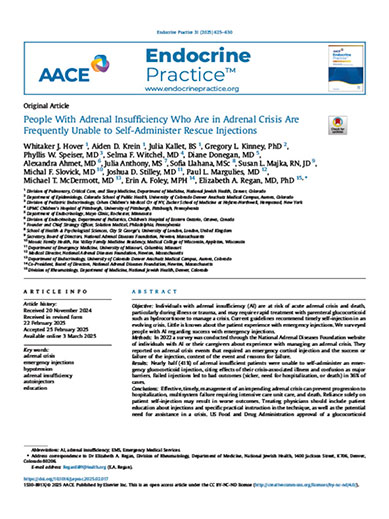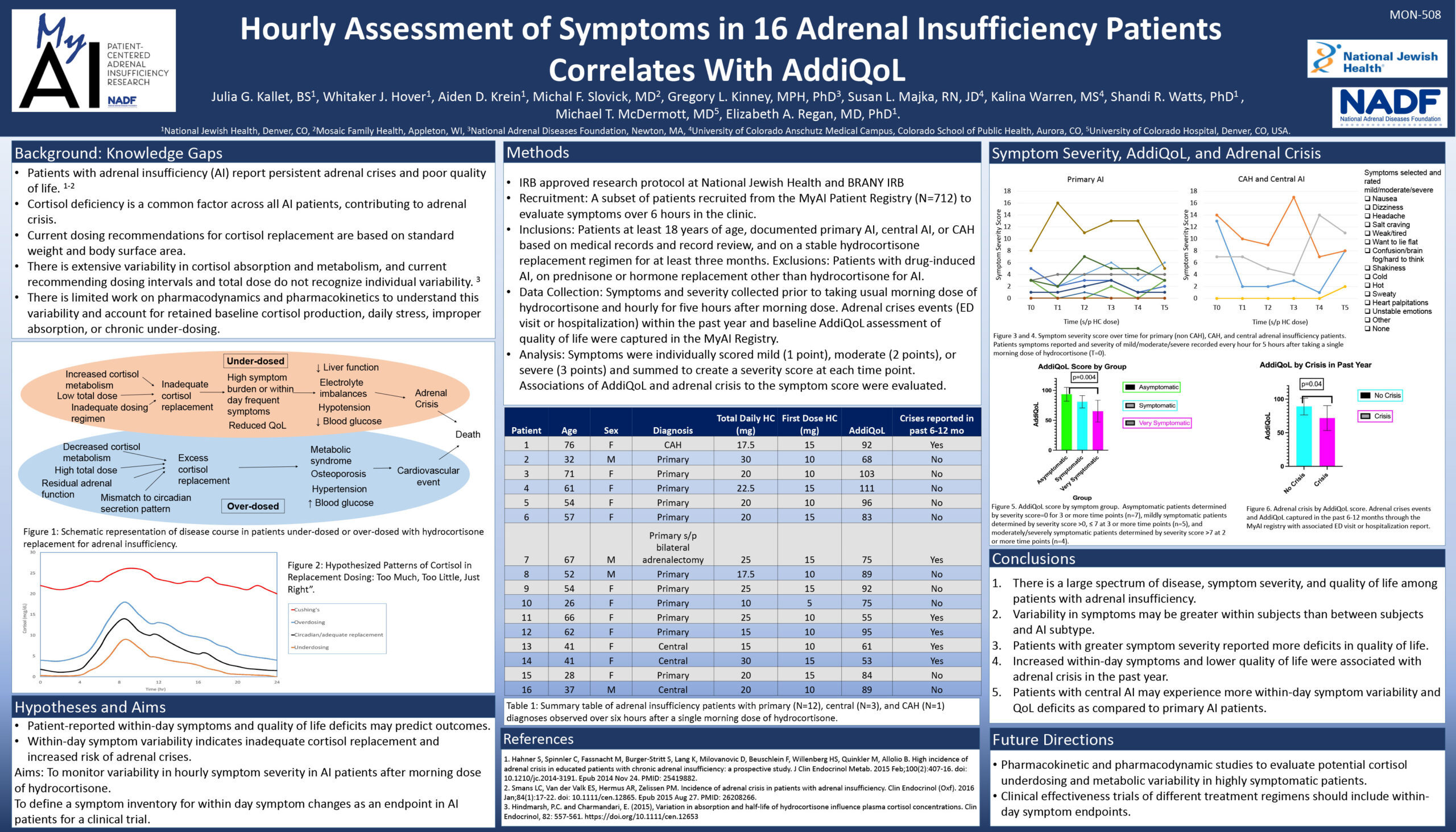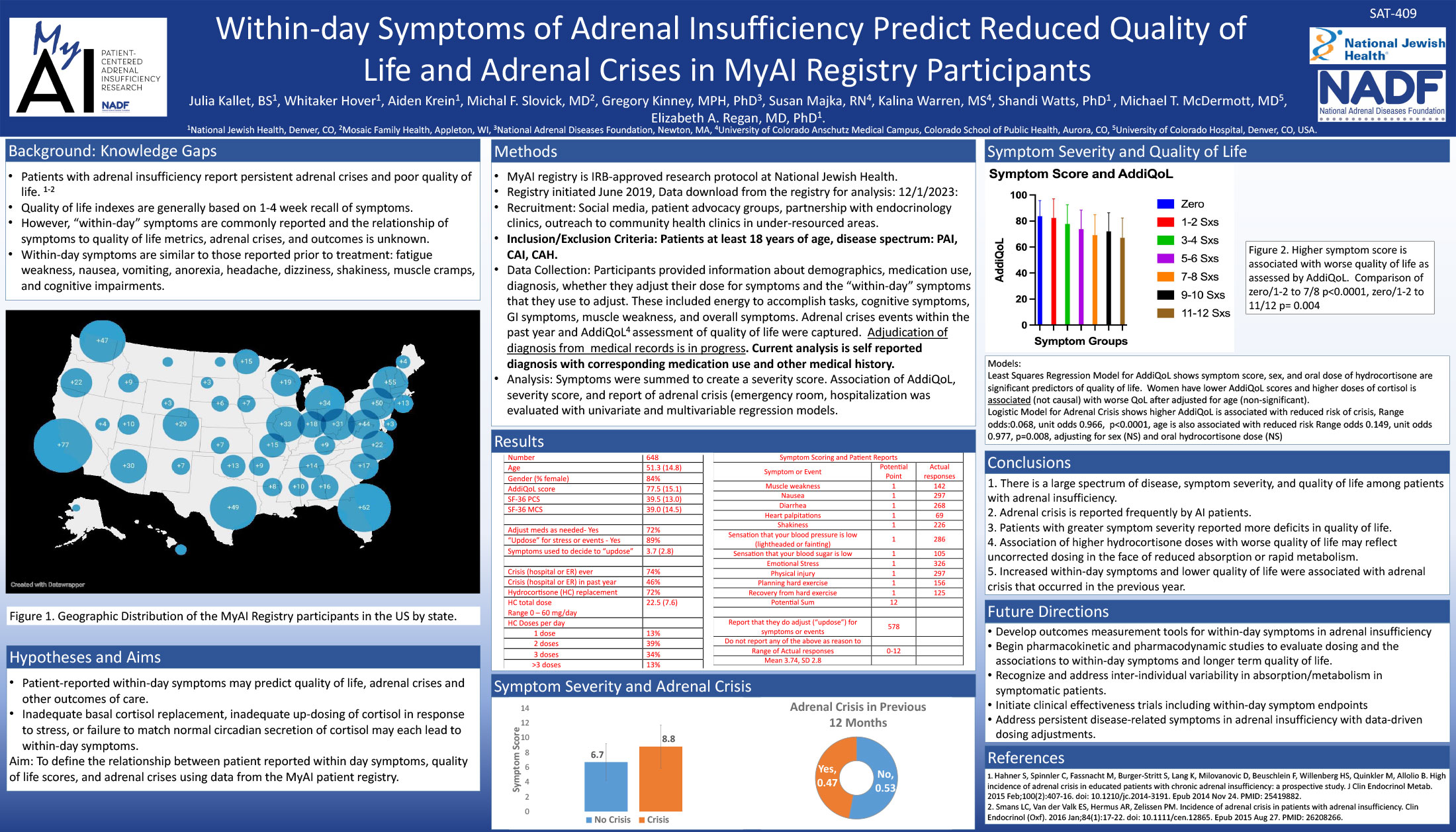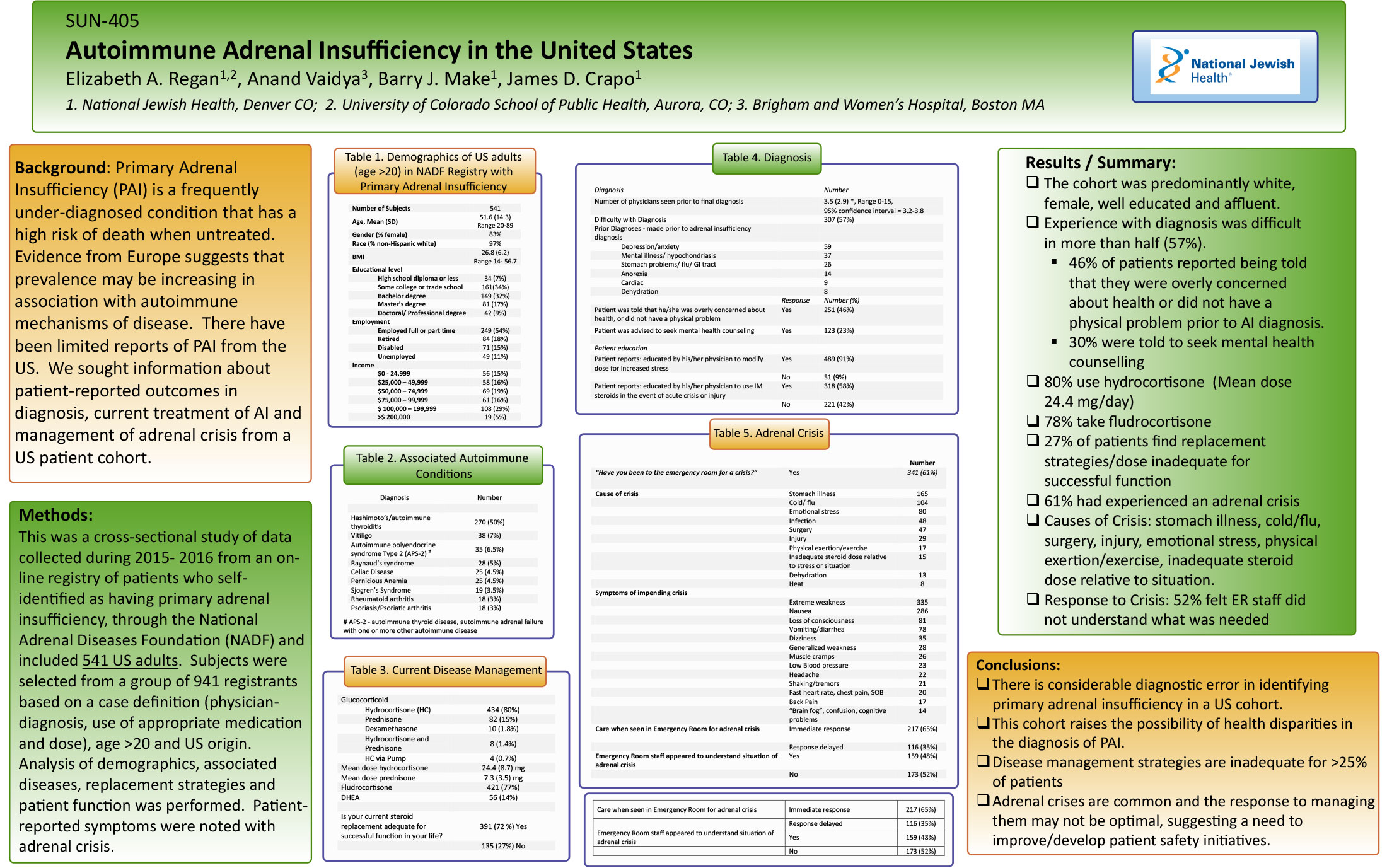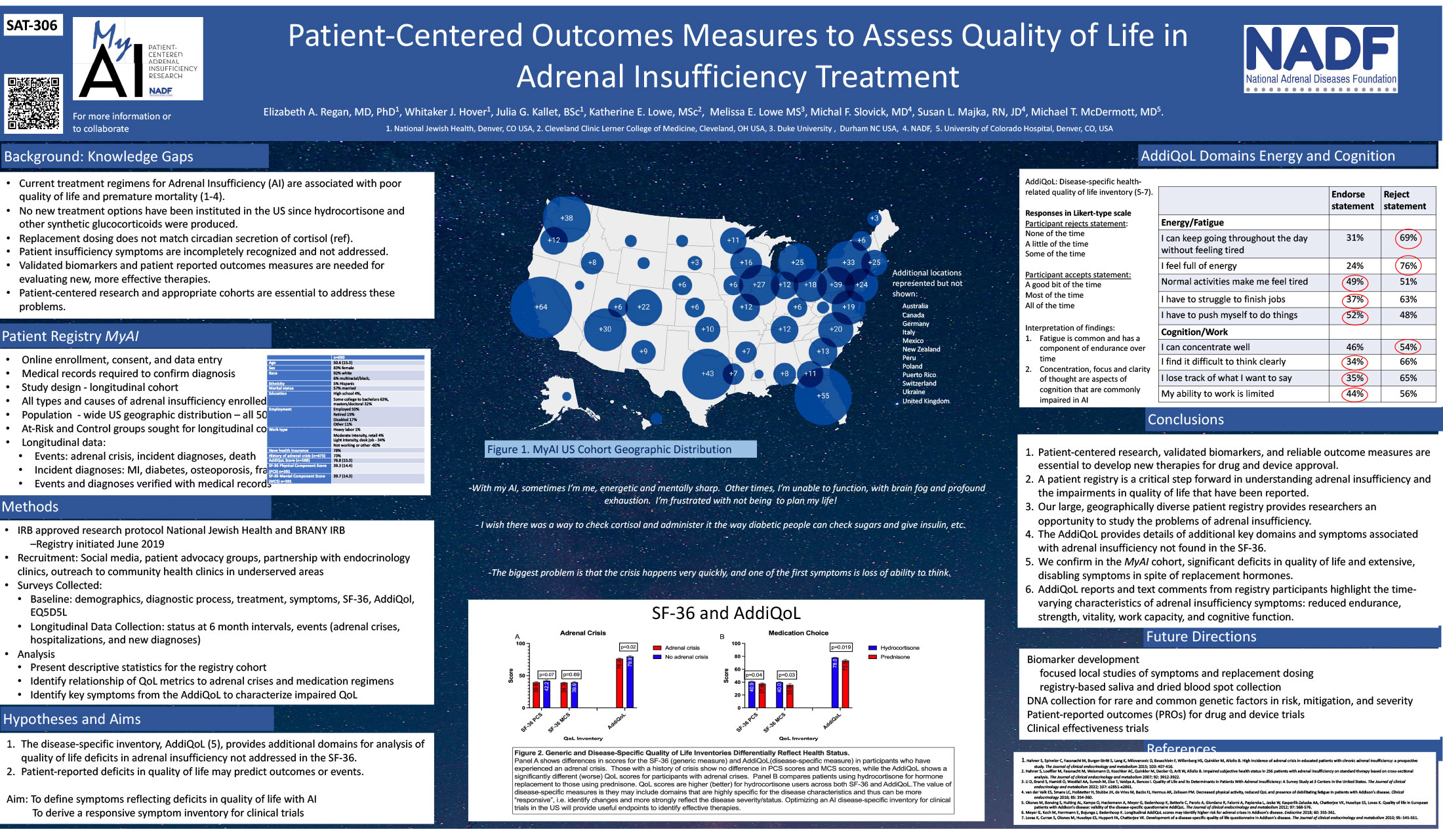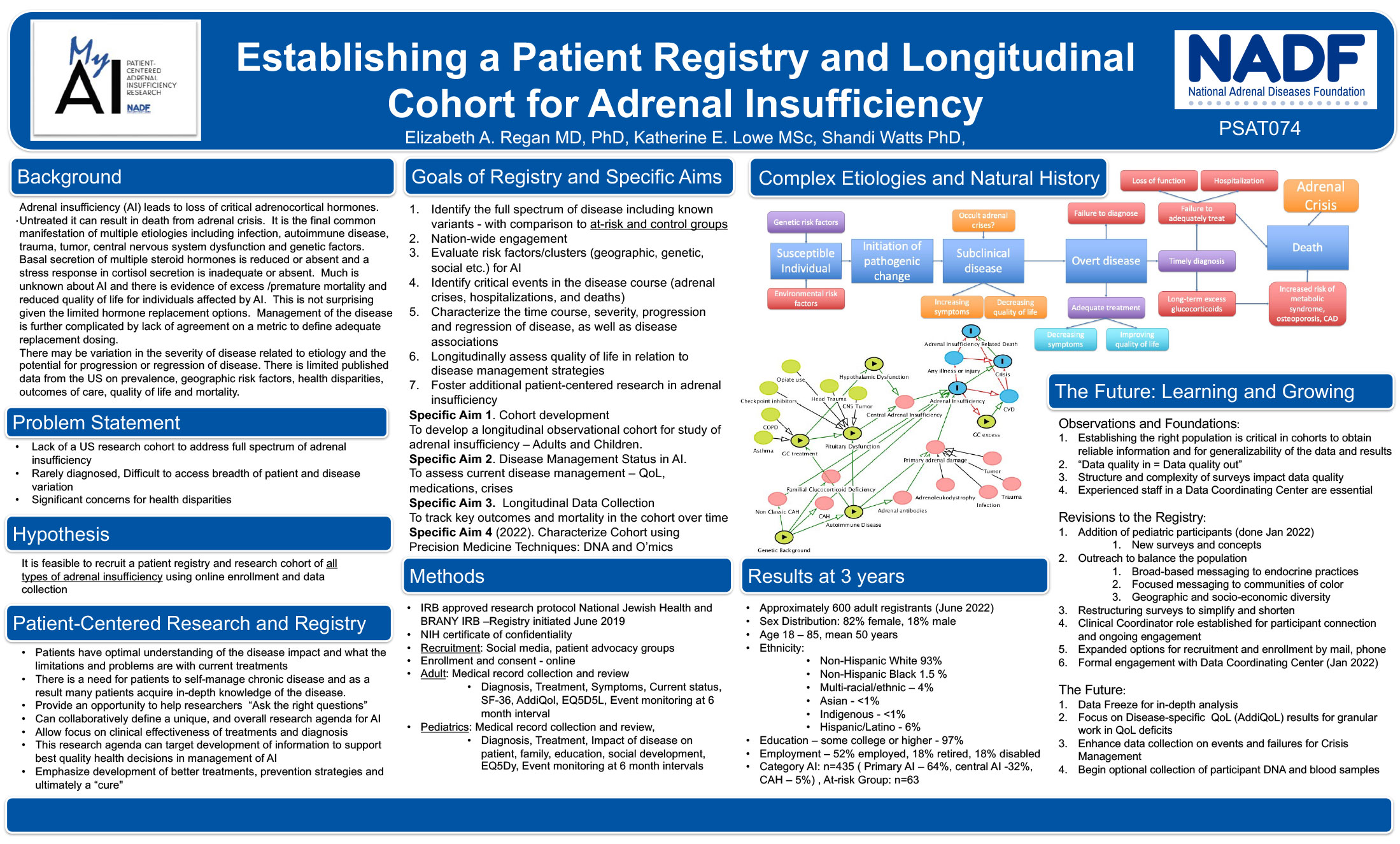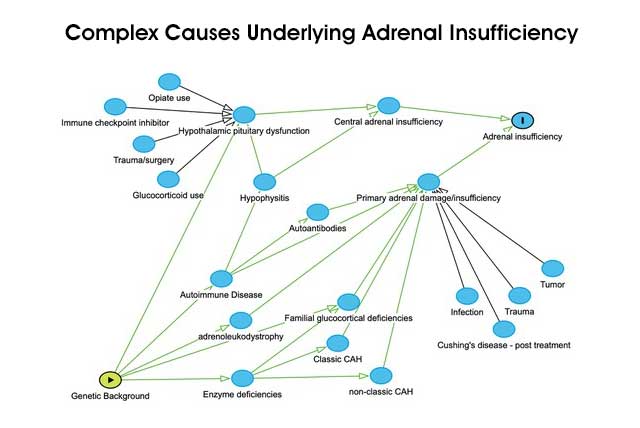The Adrenal Research Institute
Adrenal Insufficiency Patient Registry
and Patient-Centered Research
Mission: Establish a structure to support research in adrenal diseases and introduce patient-centered focus for all future research.
Vision: Improved understanding of adrenal diseases and their impact, leading to better care of affected people and their families and expanding general knowledge.

Goals
- Develop a patient-centered longitudinal research cohort with particular attention to adrenal/ cortisol insufficiency
- Identify current and emerging treatments for adrenal insufficiency
- Rigorously assess AI treatments and disseminate results to patients and stakeholder
- Monitor key outcomes of the disease and treatment effects
- Create worldwide partnerships with adrenal clinicians and researchers
- Understand current care status for adrenal disease patients especially adrenal cortisol insufficiency
- Improve diagnosis success and time to diagnosis of adrenal insufficiency across all subtypes and causes
- Reduce deaths from adrenal diseases
Registry-Specific Activities
- Grow the registry cohort in a representative fashion to reflect the population at large with patients and families affected by adrenal diseases by using best practice methods to enhance patient engagement and enrollment of underserved populations
- Include all age groups using age-appropriate consent procedures and data collection
Define the cross-sectional characteristics of the cohort at suitable timepoints - Explore the genetic factors that underlie adrenal disease using All of Us, UK Biobank, COPDGene as well as the MyAI patient registry
- Seek biomarkers for diagnosis and for assessing treatment efficacy vs overtreatment and side effects
General Activities
- Establish and utilize one or more patient advisory panels
- Distribute informational brochures to adult and pediatric endocrinology practices
- Define subsets and heterogeneity in the disease using best practices
- Establish relationships with all adrenal patient advisory groups
Research
Research
Data Registry
Cross-sectional data from the registry.
Registry Validation
Validation of disease diagnosis with medical record review.
New Proposals
Further research will generate new proposals and advancements in the field.
COPDGene
COPDGene – Adrenal size and steroids levels
Adrenal Crisis
Adrenal Crisis definitions
Data Sharing
Collaboration with research institutions and continuing data sharing.
Adrenal Insufficiency
Adrenal (Cortisol/Cortical) Insufficiency (ACI)
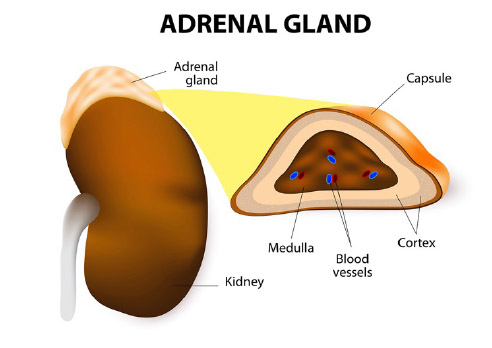
Rare – but not that rare
- Lacks good prevalence data, but…
- Less than 200,000, likely >140,000 affected persons over all causes
Multifactorial
Genetic, autoimmune, tumors, infections, or even drug induced.
Common Problem across all subtypes
Life-threatening loss of cortisol secretion
Cortisol Functions
- Basal circadian secretion and critical role in stress response.
- Controls energy metabolism, blood volume, cognition, immune and muscle function as well as numerous other functions
Striking disconnect between the patients and the endocrine community
Many published reports of poor quality of life in “standard treated” patients
- 80% report chronic symptoms, > 50% report disabling symptoms
- Significant heterogeneity in disease severity and treatment response
- Symptomatic patients are viewed as “complainers”
Other treatments exist – published as effective, used in practice, but not widely available to most patients
Majority of physicians unwilling to “allow or consider” different therapeutic options without RCTs
What is needed
Doctor –Patient agreement, shared knowledge and goals, for care and decision-making
Tests
Tests to assess short term or long-term adequacy of treatment effectiveness or harm
Quality of Life
Understanding of what patients experience that leads to poor quality of life
Engagement
Publications and scientific engagement
Comparative Studies
Comparative effectiveness studies!
Adrenal Registry
Registry Mechanics
- Started a Registry
- Based in part on other – COPDGene cohort study
- Research Focus
- Institutional Review Board approved study
- Online recruitment, consent and enrollment
- Started in 2019 as all volunteer
- Data collection from participant directly into RedCap
- Validation of disease diagnosis with medical record review
- Current membership
> 1100 individuals

Derived value from registry
Direct analysis of information from participants
- Longitudinal queries every 6 months – events
- Publications
Fostered the move to patient-centered research
- Results informed the development of a large comparative effectiveness study proposal
- Recruited/ established a patient/caregiver advisory group, n=12 (2 years duration)
- Refined study design, comparators, endpoints, sample size and study conduct with patient review and input
Engaged Patients and Steakholders
Publications
Scientific Study Presentation Posters
Please click study presentation posters to enlarge.
Needs and Future Directions
We don’t know what works for Treatment and it is a complicated question – It needs rigorous science to answer the questions of better treatment.
PCORI – Broad Pragmatic Comparative Effectiveness Study
- LOI submitted
- Excitement – Patients are Driving the Project and they are Amazing
Research is a Team Sport!
- Patient-centered research is just starting for us.
- There is a lot at stake: Lives are truncated and lost to this disease. Patients want to be able to work and live effective meaningful lives without unexpected collapse and crash onto the couch (like Jane Austen character).
- We need Pharma, Industry and Payors to be part of the project

Sydney Weston
8-Year-Old Sydney Weston Died After Mid-Flight Emergency on Southwest Airlines June 2024. Had Undiagnosed Adrenal Insufficiency and Adrenal Crisis (per Coroner) that caused her death.

Taylor Rousseau Grigg
Sudden death October 11 2024 • August 2023 the TikTok star wrote: It just sucks because I’m 24 years old, I should be in my prime, I should be able to carry my suitcase up the stairs, I should be able to walk, or run.

Trevor Lee Correa
April 2023 – 24 years old – He died of adrenal failure due to Addison’s disease • Trevor had a very open minded and noniudgmental spirit that was welcoming towards others. He cared deeply for other people especially the underdog.


